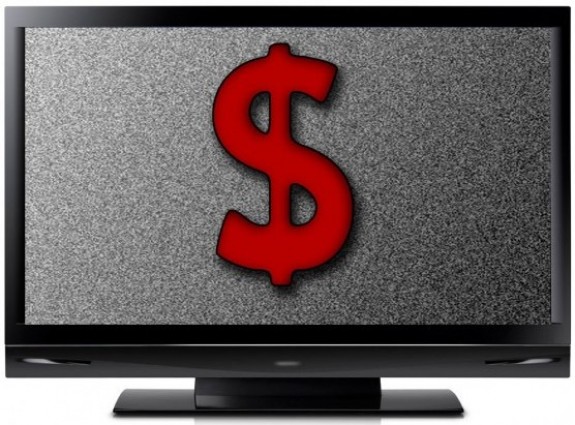Reuters has a great article entitled “Cable Worried About Poverty, not Netflix”. In it, heads of large cable companies like Time Warner and Cox say their concerns are not new and different models, but that the current fiscal situation leads people to shed their services.
I think what the executives and the author are missing is that it’s not an either/or scenario. Forgive me for sounding like an old man, but when I was a boy, cable was a luxury. Somewhere along the line, it became a necessity. You simply had to have it. Except if you wanted it for one thing (say, ESPN), you also had to take things you maybe didn’t (hypothetically, MTV 1 – 30). Cable TV was all bundled and packaged. You have the illusion of choice by being able to get different packages. At the end of the day, to get something you want, you have to get something you don’t as well. People were willing to put up with and pay for that back-in-the-day, but now the changes in technology also change what people are willing to spend.
With the Hulu, Netflix, or even website model, you don’t need to bother with those cable package options. If I want to watch Leverage, I don’t need to pay $30 a month (assuming I’m using a base package with a triple play promotion) just to watch that show. I can wait an extra week and go to TNT’s website. The annoyance of waiting the extra week is tempered by the money saved and the lack of commercials. If I want to cut the wait factor, well, there are several shows that are next day on Hulu. If I want to pay and use Hulu Plus or Netflix, I’m still saving money off of what cable would be, and I’m also getting the ability to stream to my gaming console, smartphone, and/or tablet – something I would be completely unable to do with my cable.
I’m not just talking about this in abstract. A few months ago, my wife and I decided to save money by cutting our services. We barely used the landline from our cable company, and our TV had become a “standby device”. If we wanted background noise on, we’d turn it on. The shows we really wanted to watch we were watching on our other devices, anywhere. I hooked an old laptop to our TVs, set up a basic share for our purchased shows and suddenly we were saving $60 a month and only bothering with the shows we actually wanted. As an added bonus, we’re finding that we’ve a lot more time for other stuff without “I’ll just see what’s on” in our lexicon.
Yes, our initial reasoning was fiscal, but if we hadn’t had the Netflix/Hulu/iTunes/Amazon VOD solution available, we probably would have sucked it up and just kept paying. If cable execs really want to reach out to people who find themselves priced out, they need to consider doing more than dropping the price and consider things like an a la carte model. More for less should be their mantra.


I keep wanting to do something like this, but haven’t gotten to the point where I can cut myself off from the cable teat yet.
Yep, I used to have the 200 channel AT&T U-Verse TV package bundled with my broadband access, but one day, I was informed that I could actually dump the TV part and keep just the high-speed Internet portion. (AT&T didn’t make that at all clear as an option back when I first subscribed. The “word on the street” was that you had to take at least the most basic TV package + some sort of Internet as a package, or else they’d tell you to just order DSL service instead.) I got rid of it, saving around $45-50 per month, and honestly, we RARELY miss it.
The over-the-air digital TV stations have better clarity than the typical U-Verse stations provided, and with almost all of them using sub-carriers now, you get 2-3x as many choices as you used to have. (Our local PBS station, for example, has a dedicated “PBS Kids” station running on 9.3, while 9.2 is some kind of DYI/home improvement type station.) With a Netflix subscription plus that, there’s enough content to find something worth watching when you’re in the mood for TV.
Honestly, if I was a really big sports fan, I *might* keep my cable TV for the ESPN stations — but that’s just not a big deal to me. Otherwise, I don’t even know what’s on cable anymore that really justifies the expense? It does seem like it’s gone back to being a costly luxury item…. Sure, HBO and Showtime try to stay relevant with their original series, which are often pretty good. But you have to pay even MORE per month on top of a basic cable package to see those channels. So how much are they really worth in the grand scheme of things?
Boo cable. Hurray Netflix, Hulu and set top boxes!
Honestly, I don’t care about most of the programming on TV these days. I feel like I’m being forced to watch what some network exec thinks I should, rather than something I really care about.
I think the final straw came one day when I found myself unable to adequately answer when my wife asked what I’m watching: “uh, I dunno” “Well, then why are you watching it?” “um… ‘cuz its on?”.
I don’t even watch network TV live anymore. I prefer to “power watch” multiple episodes at a time after the fact when possible. Am I out of the loop? Maybe, but I never regretted my decision.
You’re missing the important thing here — why in the name of all that is good and righteous would anyone want to watch Leverage?
Talk like that’ll get you fired, mister.